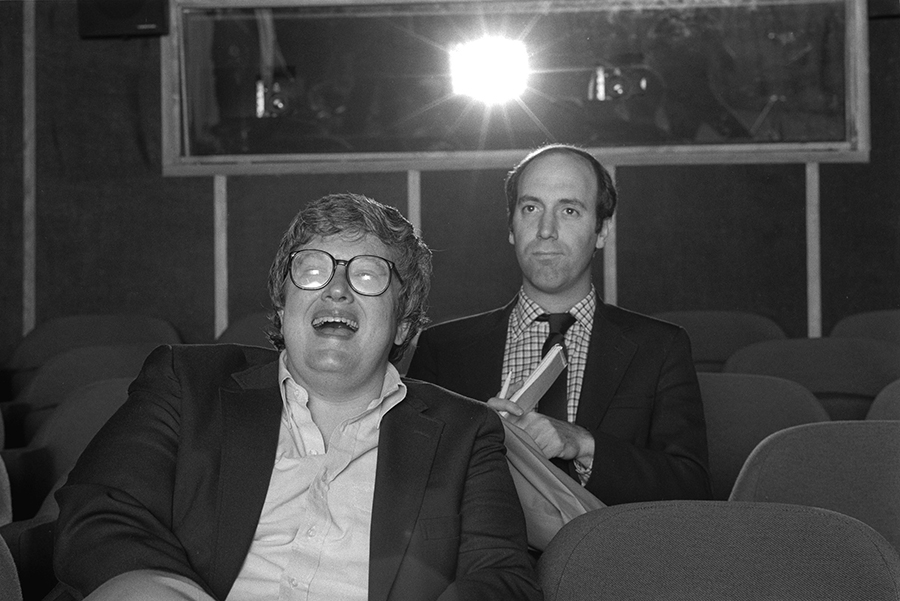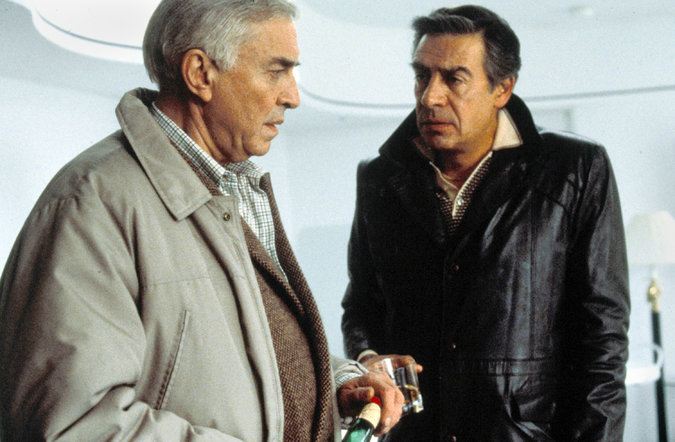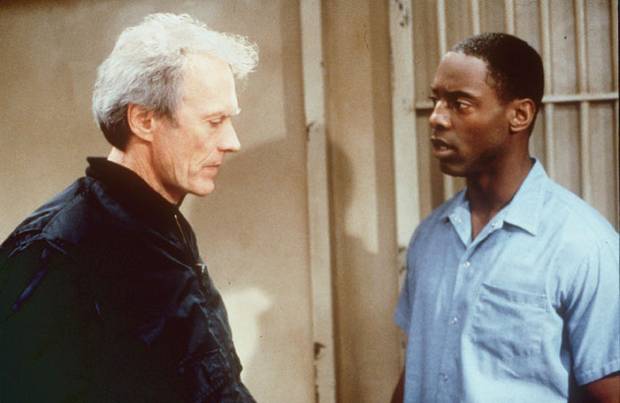Roger Ebert hasn’t always been my favorite film critic. I’ve often enjoyed the sharp-edged reviews of A.O. Scott and the looping back and adroit asides of Anthony Lane. But Ebert succeeds as few reviewers do with his Midwestern idiom and subtle powers of observation.

Now, there’s a super documentary about Ebert and his legacy, “Life Itself,” which Filmworks will screen on Aug. 8 at the Tower Theatre. Martin Scorsese executive produces and Steve James directs.
What has always struck me about Ebert’s reviews is how he cuts to the commonplace, small things that loom large and always go to the heart of matters. Let’s look at three examples.

From Ebert’s review of 1989’s “Crimes and Misdemeanors,” directed by Woody Allen:
“The implications of ‘Crimes and Misdemeanors,'” Ebert writes, “are bleak and hopeless. . . . [Martin] Landau is never more effective than when he is shocked and dismayed at his own behavior. It’s as if he’s regarding himself from outside, with a kind of fascination. He sees what he does, and does nothing to stop it. In his own world, he is the eyes of God.”

About the 1999 production of “True Crime,” directed by Clint Eastwood, and starring Eastwood and Isaiah Washington, Ebert wrote:
“Many recent thrillers are so concerned with technology that the human characters are almost in the way. We get gun battles and car chases that we don’t care about, because we don’t know the people firing the guns or driving the cars. I liked the way Eastwood and his writers (Larry Gross, Paul Brickman, and Stephen Schiff) lovingly added the small details. For example, the relationships that both the reporter and the condemned man have with their daughters. And a problem when the prisoner’s little girl can’t find the right color crayon for her drawing of green pastures.”
He continues: “The movie is rated R. It’s a funny thing. Many of the PG-13 movies aimed at teenagers (“Coyote Ugly,” for example) seem corrupt and without value. Many of the R-rated movies about teenagers (like this film, “Welcome to the Dollhouse” and “Almost Famous”) seem ideal for thoughtful teenagers. The MPAA counts the beans but never tastes the soup. Make a worthless movie but limit the nudity and language, and get a PG-13. Make a movie where the characters live with real problems and try to figure out what to do, and God forbid our children should be exposed to such an experience.”
The 2014 Richard Linklater film, “Boyhood” is a unique film about growing up. In one of his last reviews, Ebert obviously adored the movie:
“The second shot of ‘Boyhood’ doubles as the movie’s poster image: a young child named Mason, Jr. (Ellar Coltrane) lying on his back in green grass, staring at the sky. He does not speak and there is no voice-over narration, so we cannot know what’s in his head. But the movie is contemplating, among other things, the fleeting nature of existence — the way that time, to quote ‘Life Itself,’ slips through your fingers like a long silk scarf.”
“‘Boyhood’ became the instant subject of media buzz [in 2013] when Linklater revealed that he’d been working on the project for 12 years, following the same actors (including Patricia Arquette and Ethan Hawke as the hero’s parents, Olivia and Mason, Sr., and the director’s daughter Lorelei Linklater as his sister Samantha) through the early part of the 21st Century. We watch the children grow up and the adults thicken and grey. . . .”
“It’s all a blur. The blur is indescribably moving. We’ve seen people age in movies and on TV programs — the kids in the ‘Harry Potter’ and ‘Up’ series, for instance, and little Ronny Howard on ‘The Andy Griffity Show,’ and Kiernan Shipka on ‘Mad Men’ — but we’ve never seen it happen in such a compact span of screen time. That’s what makes ‘Boyhood’ singular. There is no other work to which one can directly compare it without distorting pop culture history. This movie is truly its own thing, as eccentrically unique as Linklater’s breakthrough ‘Slacker,’ another Austin-set feature to which ‘Boyhood’ feels (curiously) like a companion piece, or perhaps a bookend.”
Ebert died in April 2013. Certainly we will miss his plain and profound takes on movies. He’s a good counterbalance to East Coast erudition. But we don’t have to miss Ebert’s books; Amazon will sell you 12.
Jim Piper is an author, a filmmaker, and a retired film studies instructor. He serves on the Filmworks advisory board. His latest book, the novel “Runaways,” is out this summer from Tate Publishing.
